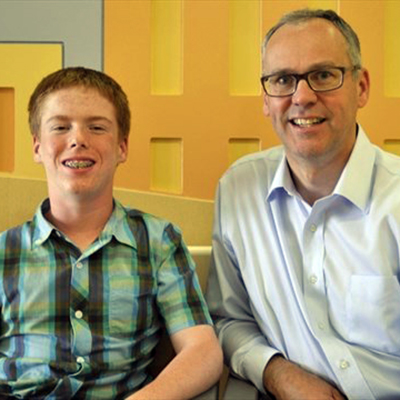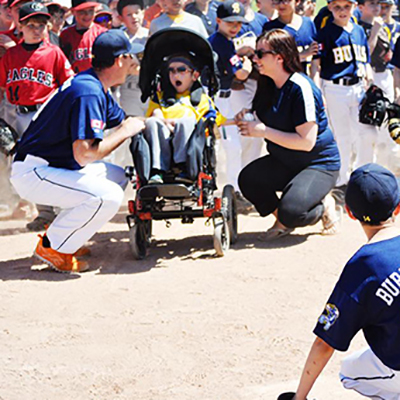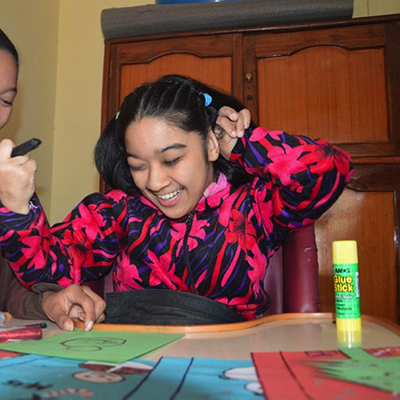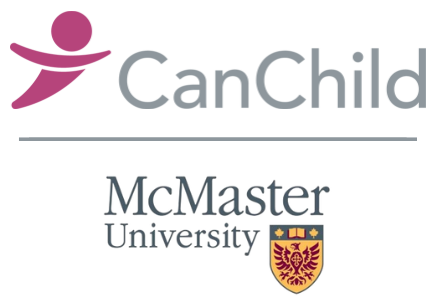Family & Clinician Voices
This section provides examples of how parents, youth with disabilities and clinicians are talking about and applying the F-words. The quotes are taken from news articles and online blogs written by people around the world. If you are writing about the F-words or using the F-words in practice, we encourage you to share with us. Questions we have for you:
- What do the F-words mean to you?
- How are you applying the F-words?
- What are your hopes for the F-words in the Future?
You can reach our research team by email (fwords@mcmaster.ca) or on social media (@canchild_ca). Join our call for action!
PARENTS – If you like these ideas, share them! Share them with your social networks, your friends, family members, and service providers.
SERVICE PROVIDERS – Bring these ideas into every clinic visit, to every case conference. Start every visit by asking clients and families: “What do you want to brag about?” and think about how your proposed plans/therapies fit within the ICF and F-words ideas.

"Without sports, I don't know what I'd do with my life" - Kyle
Photo courtesy of the Hamilton Spectator
"CanChild focuses on the F-words",
Hamilton Spectator, Canada
An article published in the Hamilton Spectator on June 28 2015 celebrates CanChild’s 25th Anniversary. In the article, Dr. Jan Willem Gorter, Director of CanChild, highlights that the centre focuses on the "f-words" of childhood disability: function, family, fitness, fun, friends and future. Kyle Chambers, a youth who has participated in multiple CanChild studies states “With the right work ethic you can do anything with a disability … (Children may) have a disability that's holding them back but that doesn't mean they can't do it, it just means they have to do it in a different way."
“Sod functional, it's fun! F-words as Priorities”
-Diane Kay (Parent), UK
Diane Kay, parent researcher on the F-words in Childhood Disability Research Team, wrote about the F-words in the Holland Bloom Magazine, titled “Has your doctor heard about these F-words?” In the article, Diane talks about how she heard about the F-words and what they mean to her family. Diane also introduces ‘The F-words Agreement’, a tool she created to share the F-words with professionals and people working with her son and their family. Diane states, “To me (the F-words Agreement) represents an informal but serious pact between the child and whoever they rely on for support. I see the F-words as a minimum standard, especially when decisions about services and interventions are made.”


"The F-words made me reflect about my role as a Physio… I think as therapists we can strive to deliver an approach that has these words at the heart of it." -Ellie
Photo courtesy of Brenda Agnew
“Therapy – it should be all about the F Words?!”
-Ellie Barton (Physiotherapist), UK
Ellie wrote a blog post on Children’s Physio Blogger titled “F-Words Paper – The ‘F-words’ in childhood disability: I swear this is how we should think” on April 4 2017. Her blog highlights how the F-words can help clinicians reflect on the aims of their practice and re-think their approach to working with children and families.
“The traditional medical model of diagnosing and “fixing” doesn’t work with CP”
-Jessica Geboers (advocate), Canada
Jessica is a journalism graduate, a person with CP and a disability advocate. Recently Jessica heard about the F-words through a presentation by the Ontario Federation for Cerebral Palsy and she took the opportunity to read the original F-words paper. Jessica “appreciate[s] that it, although published in September 2011, is gaining traction within the research and treatment community.” She describes some of the exciting points in the article and how they relate to growing up with CP.

"People with disabilities have a future...service providers should make this clear right from the start...this could be a future full of friends, education, goals, dreams, and even romance.” - Jessica
Photo courtesy of the Jessica Gebeors Blog

“I would love to see these concepts incorporated into every aspect of clinical service, research and advocacy for children with disabilities.” - Julie
Photo courtesy of Julie Brocklehurst
“All children have the capacity to succeed.”
- Julie Brocklehurst (Parent), Canada
Julie Brocklehurst, parent researcher on the F-words in Childhood Disability Research Team has written a number of blog posts on the F-words on her personal blog Tiptoeing Through. Julie first wrote about the F-words after hearing Dr. Rosenbaum speak at the 'CP in Motion' conference which took place in Halifax in May of 2014. It was through her blog that she connected with CanChild and is now a member of the F-words Research Team. In her most recent blog post, Julie reflects on the importance of clinicians, researchers, and families working together to transfer the F-words into practice. Julie states “We make up an interesting group of experts! While each party brings their own perspective, values, and experiences, there are common goals and overlapping beliefs. This is the power of a collaborative approach!”
“ The six 'f's' of therapy planning for your child”
-Dr. Fiona Jones (Occupational Therapist), Australia.
Dr. Fiona Jones, an Occupational Therapist in Australia wrote an article on the Source Kids website about how and why the F-words should be implemented into therapy planning. In the article, Dr. Jones states that the F-words “create a framework for therapy planning for children, focusing on their everyday life and their strengths, rather than a deficit model.” Using the F-words framework, Dr. Jones provides examples of questions therapists may ask children and families under each of the F-words headings to support a strengths-based family-centred approach.

“Let’s focus on their strengths, childhood and planning for the future instead.”-Fiona
Photo courtesy of Tara Fowler

“At first, F-words may seem obvious, but how well do we actually pay attention to these elements in children's healthcare and rehabilitation?”-Lotta
Photo courtesy of Samadhi Mora-Severino
“F-words in Rehabilitation”
- Lotta Kauhanen (Physiotherapist), Finland
Lotta Kauhanen is a Physiotherapist from Finland who first learned about the F-words at the thirteenth international Congress for Research in Rehabilitation (EFRR 2015). The theme of the Congress was "Being, Doing, Participating", which was built on the International Classification of Functioning, Disability and Health. Following the conference, Lotta wrote a blog post on her learnings from the conference and highlighted the F-words. Lotta stated, “The F-words "Function", "Family", "Fitness", "Fun", "Friends" and "Future" propose how the thinking behind the ICF classification can be brought to children’s rehabilitation in a way that is fun, easy and memorable. Through these F-words, it is possible to change the paradigm from disability to seeing the opportunities and possibilities of a child's participation and functioning.”
“Disability, Nepal and F-words”
-Deepa Bajracharya, (Physiotherapist), Nepal
Deepa Bajracharya is a Physiotherapist in Nepal who wrote a blog post on the Pediatric Rehabilitation Nepal Website. Her blog describes how the F-words may be useful in shifting thinking and approaches to working with people with disabilities in Nepal. Deepa highlights the important changes in thinking from a biomedical model to a biopsychosocial model, which is the foundation of the International Classification of Functioning, Disability and Health (ICF) and the F-words concepts. Deepa states “The much clearer picture emerged when I came across this paper by Professor Rosenbaum and Professor Gorter. It made me realize the necessity of leaving the “Biomedical model” concept behind and moving forwards towards a better service provision model being embraced today in the field of Disability. “ Deepa is sharing the F-words with culturally modified examples specific to Nepal with the hope that “in the near future, Rehabilitation in Nepal will be very closely linked to these famous F-words.”

“Ask yourself: As a therapist do I really focus on function, family, fitness, fun and friends so that the children I work with can develop a meaningful rather than a ‘normal’ future?” -Deepa
Photo courtesy of Pediatric Rehabilitation Nepal
